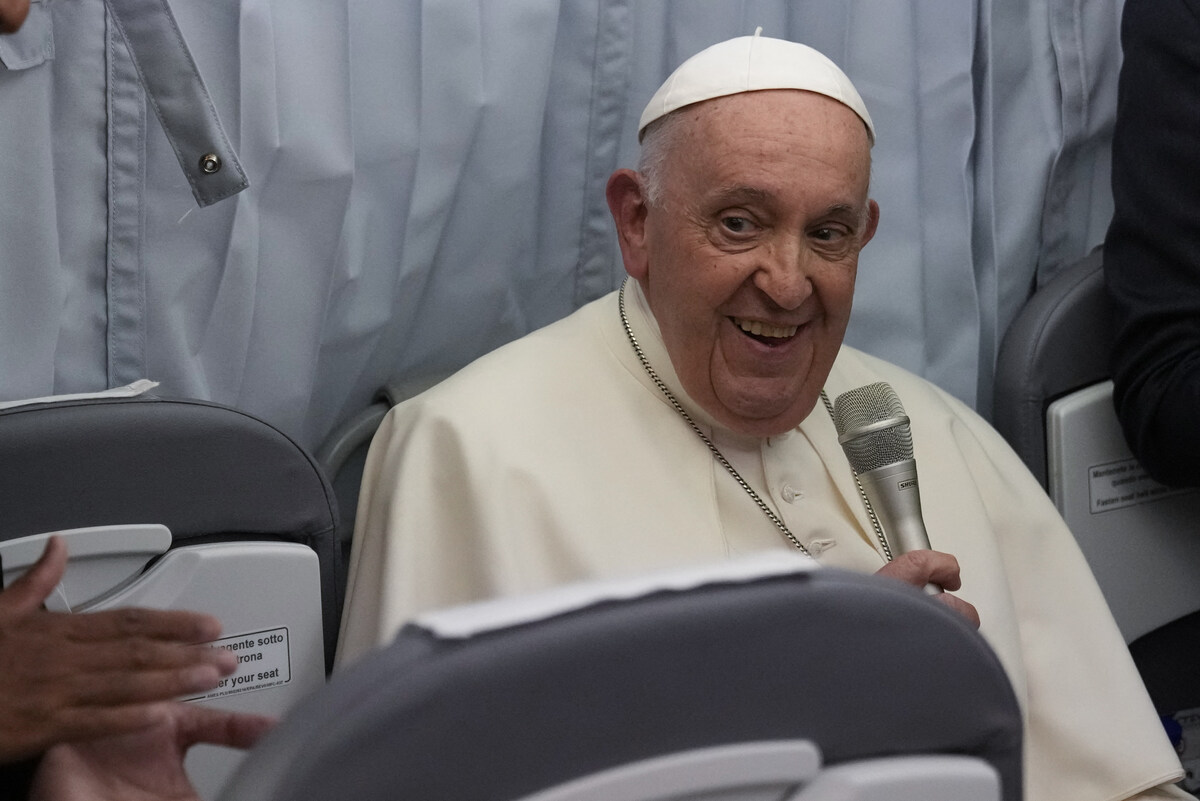In a virtual exchange on the eve of the Synod, Pope Francis engaged in a 90-minute dialogue with twelve university students from India, Pakistan, and Nepal.
The discourse delved into the challenges of upholding the Christian faith in a hostile South Asian environment, often riddled with open persecution, according to AsiaNews.
The imperative to confront the prevalence of half-truths disseminated via social media, which contribute to societal polarization, was emphasized. The discussion also broached concerns about the encroaching “commercialization of education” within Asian institutions.
This interaction unfolded during an online event titled “Building Bridges in South Asia,” organized by Loyola University, the Jesuit institution based in Chicago, in collaboration with the Pontifical Commission for Latin America.
The dialogue marked the third stage of an initiative echoing the Synod’s spirit, which is poised to commence in Rome, following similar engagements involving young participants from Latin America and Africa in recent months.
Over the course of 90 minutes, Pope Francis listened to the students’ inquiries and provided responses.
Particularly impactful was the third segment of the dialogue, during which three young women—Florina from India, Niru Maya from Nepal, and Sheril from Pakistan—candidly shared their experiences of practicing Christianity in an environment marked by oppression and persecution.
Florina even brought to light the suffering endured by Christians in Manipur, an Indian region embroiled in a grim cycle of violence among ethnic groups that has assumed religious dimensions since May.
They sought guidance from Pope Francis on how to navigate such challenging circumstances.
Pope Francis expressed profound empathy for their testimonies and evoked the memory of innocent individuals, such as “that woman who spent many years in prison without having done anything,” likely alluding to Asia Bibi.
The pontiff posed a question: “Where does the root of intolerance lie?” His answer urged a quest for this root within “the fervent adherence to an idea over compassion.”
He said, “When a tradition, even one as venerable as Christianity, adopts such a stance, it risks becoming the harbinger of its own demise.”
Drawing inspiration from Miru Naya’s testimony in Nepal, Pope Francis encouraged unwavering commitment to this path. He said, “Bearing witness to the Gospel through one’s life is of paramount significance.”
“Keep nurturing your dreams. Do not relinquish the practice of extending a helping hand to one another, always bearing in mind our shared brotherhood,” he added.
Pope Francis invited all young participants to cultivate creativity and self-esteem, emphasizing the importance of dialogue with others.
Reflecting on the testimony of a young woman from the Indian diaspora in the Persian Gulf, who grappled with maintaining a connection to her cultural roots, he evoked the metaphor of a diamond, whose uniqueness only emerges through the careful chiseling of its facets.
The young South Asian participants also raised concerns about their relationship with modern technology and the prevalent misuse of social networks, which often propagate falsehoods and hate campaigns, exacerbating age-old discriminations like caste divisions.
Pope Francis responded by highlighting that “harmony lies in embracing diversity, not uniformity.” He encouraged young people to rediscover alternative modes of expression, such as poetry.
With a personal touch, he said, “During my student years, I composed poems, but I was too timid to share them… Each one of you is a poem.”
When Sagarika, an Indian student, voiced concerns about the commercialization of education, Pope Francis reiterated the importance of education being accessible and free—a fundamental right, not a means for profit.
“Forge ahead with courage. And here’s a piece of counsel: never lose your sense of humor—it is a boon for your mental well-being,” said Pope Francis.







